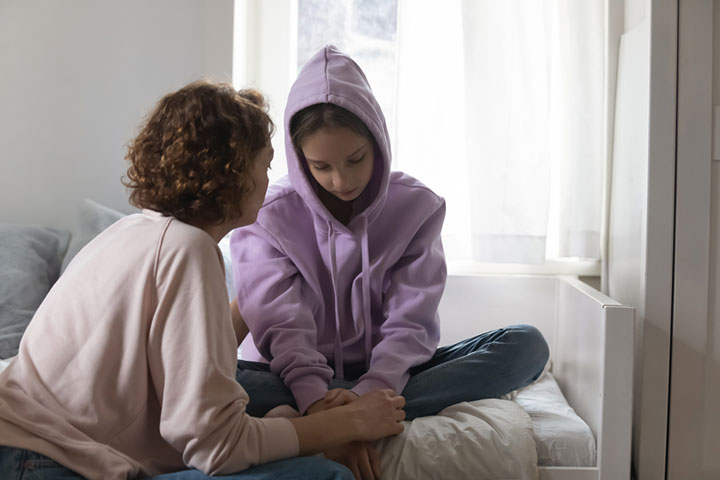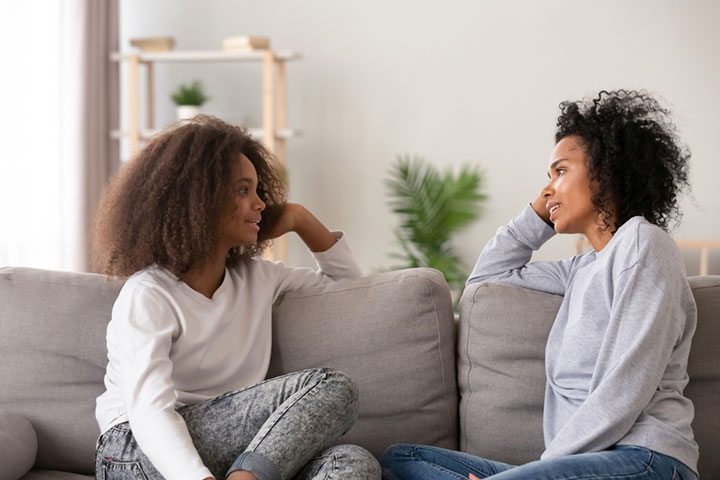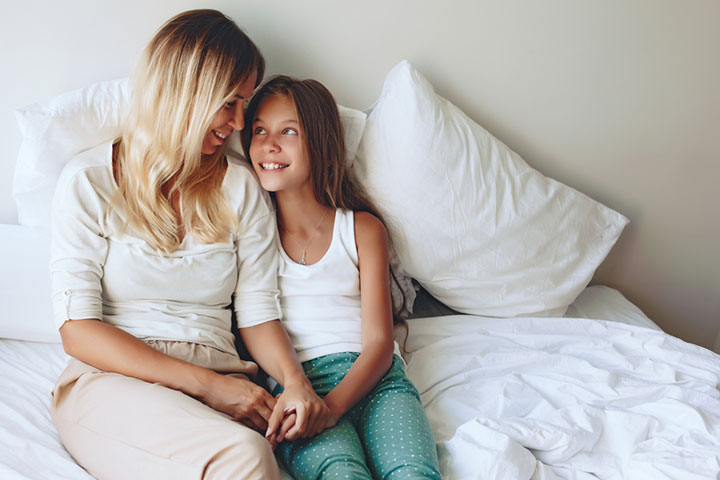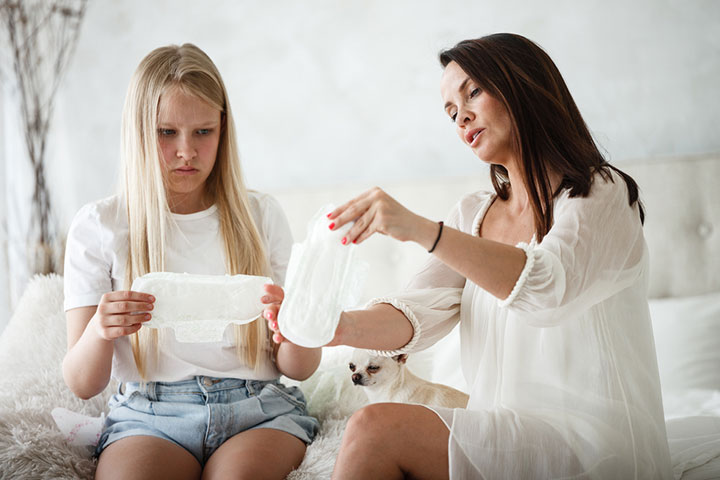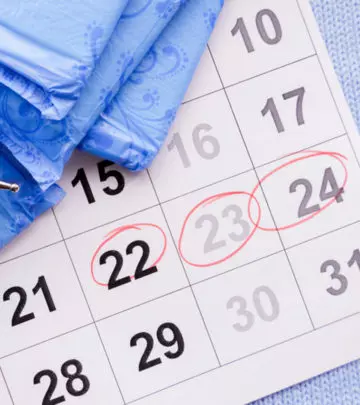
Image: Shutterstock
As parents of little girls, you know sooner or later, you need to talk to them about periods. We know it’s never easy for parents. And the fact that we grew up in a generation where menstruating was a hush-hush topic doesn’t make it any easier for us to have the conversation. So it’s natural for parents to be confused about what to tell them, when, and how to tell them, so that they don’t freak out about the process. Here in this article, we have listed some common mistakes most parents make when educating little girls about periods. Knowing them will help you approach the sensitive topic accurately. Read on to know them all.
1. You Don’t Know When Your Daughter Is Ready For The Talk
Conversations about adolescence and the changes they will go through should begin as early in their pre- teens as possible. One sign that they are ready is when they ask questions about sanitary napkin advertisements or are curious about products you use for periods. First, you need to find out how much your teen understands about the onset of puberty. Then, in case they need help understanding something, you should explain the fundamentals, answer any questions they might have, and correct any potential misinformation.
2. You Don’t Understand What You Should Talk About
Although learning about the biological process involved in the menstrual cycle is essential, most kids are more interested in learning how it affects them practically. So, your kid could be more concerned with knowing when it’s going to happen, how it will make them feel, and what to do when it does. There are situations when the following queries can be answered.
- What Is Menstruation?
A woman’s fertility is at its peak when her period begins. The uterus’s lining is thicker due to an increase in estrogen during the first half of the menstrual cycle. If conception occurs, the increased lining will protect the developing embryo. An egg will continue to mature within an ovary as its lining forms. Ovulation occurs when an egg leaves the ovary, often around day 14 of a cycle that lasts 28 days (1). One fallopian tube will carry the egg to the uterus. If an egg is fertilized by sperm, a pregnancy will develop, and the fetus will connect to the uterus wall. If the egg is not fertilized, it will disintegrate, resulting in a drop in hormone levels and the shedding of the uterine lining.
- Will It Happen?
It is impossible to predict when the first cycle will begin. Menstruation, however, often starts somewhere between the ages of 12 and 14 (2). Girls often see their first period between 10 and 15, with 12 being the median age.
- What Is The Duration Of The Cycle?
During the first few cycles, there may just be a few traces of blood. The average duration of a period is 3–5 days (3). However, it is not uncommon for periods to last anywhere from two to seven days. In addition, you might mention that while most women get their periods once a month, this frequency can vary from 3 to 6 weeks for individuals.
- Will It Be Painful?
Whether or not it hurts depends from person to person. Some women experience breast soreness, headaches, vomiting, dizziness, diarrhea, lower back, and stomach pains. Warm baths, heating pads, and exercise can all help alleviate these symptoms.
3. What To Do When Periods Happen?
Teach your kid how to properly use period products, including tampons, pads, and menstruating cups. Teach them that tampons or pads should be replaced every 4-8 hours, whereas menstrual cups should be changed every 8-12 hours (4). Prepare ahead of time by stocking the bathroom with various feminine hygiene items. Inspire your kid to take the time to investigate what options are best for them.
4. You Fail To Explain Everyone Is Different
If your daughter is worried about how menstruation may affect her friends, you can reassure her that everyone experiences menstruation in their unique way. Make it clear that the menstrual process varies from woman to woman or even month to month in terms of cycle duration and flow. Teenage girls also tend to suffer cycle irregularities. In addition, a woman’s cycle may not stabilize for far exceeding 6 years after she first experiences menstruation.
5. You Don’t Discuss About Any Sanitary Products
It’s crucial to consider your child’s preferences while picking out a sanitary product. Some girls begin their monthly journey with pads and then transition to tampons or a menstrual cup. However, you can start using these items immediately. If your teen decides to use tampons, reviewing the product’s directions with her is essential. Tampons may initially be a source of frustration for your kid, but you may reassure her that they will become easier with experience. Remember that tampons may cause discomfort in the beginning as the pelvic and other organs mature.
Even though educating your little one about such a sensitive process may feel taxing. Ignoring it and letting them discover it independently can lead to several problems. Make sure you teach them about proper hygiene practices of using and discarding their products and also keeping themselves clean and dry. What is the best way to educate young girls about periods? Let us know in the comments section!

